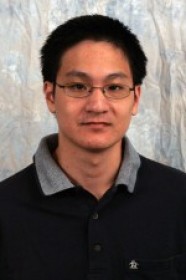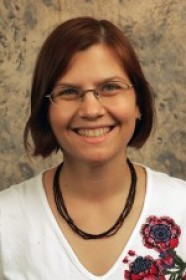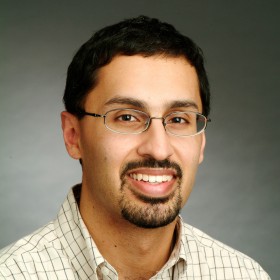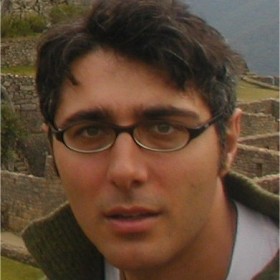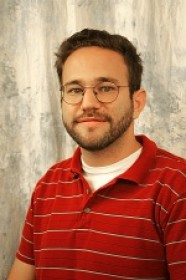Shedding Light on Modeling: Active Illumination for Mapping of Subterranean Voids
Event Location: NSH 1507Abstract: Subterranean environments are among the most hazardous, remote and unexplored in the solar system. Subsurface applications represent the prime unexploited opportunity for robotic modeling, yet robot mappers are seldom utilized. Human survey is often preferred for reasons of economy, resulting in unnecessary risk and substandard quality. There is urgent need to [...]
Classification of Mars Terrain Using Multiple Data Sources
Event Location: NSH 1109Bio: Alan Kraut is a student in the Robotics Institute, conducting research under David Wettergreen. His current research interests focus on the application of machine learning to computer vision for space robotics. He received a Bachelor of Science degree in Engineering from Harvey Mudd College in 2008.Abstract: Data about Mars are being [...]
Social Robot Navigation
Event Location: NSH 1507Abstract: Mobile robots that encounter people on a regular basis must react to them in some way. While traditional robot control algorithms treat all unexpected sensor readings as objects to be avoided, we argue that robots that operate around people should react socially to those people, following the same social conventions that [...]
Planning and Learning in Information Space
Event Location: NSH 1305Bio: Nicholas Roy is an Associate Professor in the Department of Aeronautics & Astronautics at the Massachusetts Institute of Technology and a member of the Computer Science and Artificial Intelligence Laboratory (CSAIL) at MIT. He received his Ph. D. in Robotics from Carnegie Mellon University in 2003. His research interests include autonomous [...]
Margin-based Spatial and Temporal Alignment for Computer Vision Problems
Event Location: NSH 1305Abstract: Spatial and temporal alignment are fundamental problems in computer vision that arise naturally in many real-world applications ranging from object localization and visual tracking to image categorization and activity recognition. Most alignment algorithms can be posed as an optimization problem of an energy function over a set of allowable spatial or [...]
Learning Components for Human Sensing
Event Location: NSH 1305Bio: Fernando De la Torre received his B.Sc. degree in Telecommunications (1994), M.Sc. (1996), and Ph. D. (2002) degrees in Electronic Engineering from La Salle School of Engineering in Ramon Llull University, Barcelona, Spain. In 1997 and 2000 he was an Assistant and Associate Professor in the Department of Communications and Signal [...]
Learning and Optimization Methods for High Level Planning
Event Location: NSH 1507Abstract: Motion planning for complex systems such as legged robots and mobile manipulators has proven to be a difficult task due to the high dimensional configuration spaces that underly such systems, and also due to the variety of constraints which must be met at all times. One way to escape the so-called [...]
